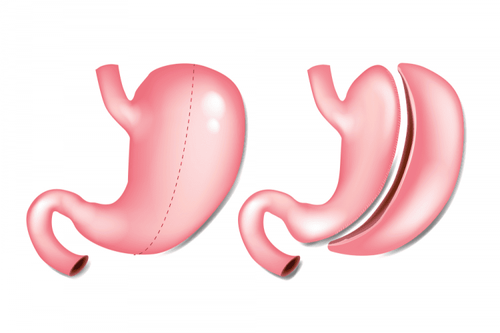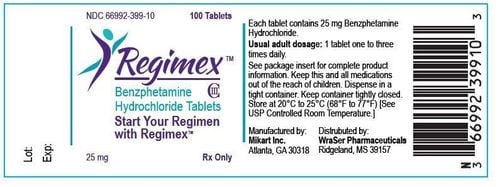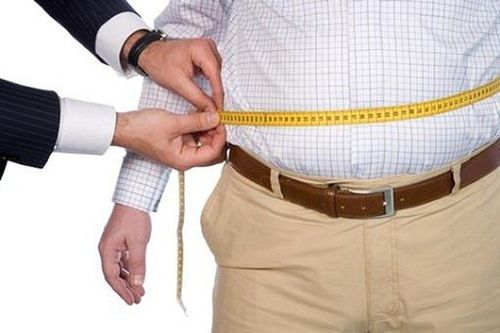This is an automatically translated article.
Weight loss surgery is carried out with the aim of improving health, reducing the risk of diseases caused by obesity. Therefore, it should only be done with those who are on an ineffective diet, or who already have obesity-related diseases.1. Overview of weight loss surgery
Bariatric surgery is a term for surgery performed with the aim of reducing the risk of disease caused by obesity. This bariatric surgery should only be performed when other weight loss measures have not worked or if you already have obesity-related conditions such as high blood pressure, high cholesterol, joint disease and diabetes.Body mass index (BMI) is a way to measure body fat based on height and weight. People who are overweight have a BMI between 25 and 29.9 and obese have a BMI ≥30.
2. Gastrectomy eat what?
After bariatric surgery, you need to stay in the hospital for further monitoring, on average it takes 1-3 days to follow-up. You should not drive while taking prescription pain medication. Start exercising as soon as you have healed according to the instructions.When you go home, you need to follow the diet that the nutritionist recommends, go for regular check-ups to monitor your health, diet and weight loss progress.
Food intake can be increased slowly over time, but it is important to:
Constantly reassess your intake and make sure you are maintaining healthy habits Choose healthy foods and don't give up Meal Chew food slowly Avoid eating when "distracted" like eating while watching TV Stop eating when feeling full Drink water at least 30 minutes before or after meals Be mindful of daily calorie intake Avoid rich foods fat or sugar Take a vitamin supplement, as recommended Exercise as part of your daily routine Make sure to get at least 8 hours of sleep every night After bariatric surgery, it can take several months to learn to listen to your body When hungry and full, food preferences can also change. This is a difficult process for some people, so during this time you can see a dietitian for further advice.
It usually takes 1-2 years to reach a healthy weight after surgery. After reaching their goal weight, some people may have cosmetic surgery to remove excess skin on their body, especially in the abdomen.
Before deciding to have weight loss surgery, you must make a lifelong commitment to staying healthy. This includes monitoring the health care team, exercising most days of the week, and eating a healthy diet each day. You need to remember that surgery is only a weight loss tool and will only work if used correctly.
Recovering from weight loss surgery can be stressful, and it's important to have the support of family and friends. Working with a social worker, therapist, or support group can help you through your ups and downs.

Sau khi thực hiện phẫu thuật cắt dạ dày, bạn nên ăn theo hướng dẫn của bác sĩ
3. Should you have weight loss surgery?
Bariatric surgery is only recommended for the following:Severe obesity (body mass index > 40) BMI > 35 with a serious obesity-related illness (including diabetes, severe joint pain, sleep apnea, and more) improves with weight loss. BMI > 30 with specific conditions, including a certain type of diabetes or a combination of conditions such as high blood pressure, sleep apnea, high cholesterol, and diabetes (also known as "metabolic syndrome" ). Certain races such as Southeast Asians and Indians may be eligible to consider surgery with a lower BMI of 27.5. This may apply to patients who have immigrated to the United States but may not apply to their future generations. Before choosing weight loss surgery, you need to make sure:
Understand the potential risks and benefits of weight loss surgery Be motivated and ready to make lifelong changes in your eating and fertility habits be active to achieve and maintain a healthier weight after surgery Be realistic about how much weight you expect to lose after surgery
4. What to prepare before weight loss surgery?
Most people who are about to have weight loss surgery will see several specialists before scheduling surgery, including a dietitian, a mental health counselor, and a doctor who specializes in caring for obese people. obesity and a weight loss surgeon. You may need to work with these people for several weeks or months before surgery.The dietitian will explain what and how much you will be able to eat after surgery. A good dietitian can give you information on how to prepare foods and read food labels to help you keep track of your calorie intake. Your dietitian will also give you a nutrition plan after surgery to help maintain weight loss. A mental health professional will help you deal with stress and other factors that can make it difficult to lose weight or lose your appetite. They can also help you make behavioral changes that can lead to a healthier lifestyle. Your doctor will determine if you need testing, counseling, or other treatment before surgery. They can also help you start a weight loss program before surgery. Your surgeon will meet with you to discuss the surgeries available to treat obesity, the pros and cons of each. Starting a rigorous and regular exercise program before surgery will help you mentally and physically prepare for surgery, lose weight before surgery, and maintain your exercise program after recovery.
5. Types of weight loss surgery
| Nối tắt dạ dày (Gastric Bypass) | Cắt tạo hình dạ dày hình ống (Gastric Sleeve) | Đặt bóng dạ dày (Gastric balloon) | |
| BMI bao nhiêu thì đủ điều kiện phẫu thuật? |
> 40 > 35 bị bệnh liên quan đến béo phì gồm tiểu đường, cao huyết áp, ngưng thở khi ngủ, cholesterol cao > 30 mắc một số bệnh liên quan đến béo phì như đái tháo đường type 2 khó kiểm soát, hội chứng chuyển hóa |
> 40 > 35 bị bệnh liên quan đến béo phì gồm tiểu đường, cao huyết áp, ngưng thở khi ngủ, cholesterol cao > 30 mắc một số bệnh liên quan đến béo phì như đái tháo đường type 2 khó kiểm soát, hội chứng chuyển hóa |
> 40 > 35 bị bệnh liên quan đến béo phì gồm tiểu đường, cao huyết áp, ngưng thở khi ngủ, cholesterol cao > 30 mắc một số bệnh liên quan đến béo phì như đái tháo đường type 2 khó kiểm soát, hội chứng chuyển hóa |
| Mức độ giảm cân sau phẫu thuật ra sao? | Thường nhanh chóng | Ít nhanh chóng | Dần dần |
| Có thể thực hiện bằng phẫu thuật nội soi không? | Có | Có | Có |
| Ruột có thể nối lại được không? | Có | Không | Không |
| Có thiết bị nào được cấy ghép trong cơ thể sau khi phẫu thuật? | Không | Không | Có, trong 6 tháng |
| Có thể trở lại sinh hoạt bình thường sau khi phẫu thuật không? | Có | Có | Có |
| Tái khám bao lâu một lần? | 3 đến 4 tháng một lần trong năm đầu tiên, sau đó hàng năm | Cứ 3 đến 4 tháng trong năm đầu tiên, sau đó hàng năm | Cứ 2 tháng trong 6 tháng, sau đó khi cần thiết |
| Có cần tái khám thường xuyên với bác sĩ dinh dưỡng không? | Có | Có | Có |
| Có thể giảm thêm khoảng bao nhiêu phần trăm số cân nặng sau 1 năm? | 60 đến 75 | 60 đến 65 | 20 đến 30 |
| Các bệnh lý liên quan đến béo phì có thể được cải thiện sau phẫu thuật giảm cân? | Có | Có | Có |
| Có gặp khó khăn khi hấp thụ chất dinh dưỡng và thuốc không? | Một số | Tối thiểu nếu có | Thỉnh thoảng |
| Có thể giảm thêm khoảng bao nhiêu phần trăm số cân nặng sau 2 - 3 năm? | 50 - 75 | 66 | Không xác định |
| Có thể điều chỉnh kích thước dạ dày hoặc lượng thức ăn đưa vào? | Không | Không | Không |
| Khả năng cần tái phẫu thuật là bao nhiêu? | Thấp hơn | Không xác định | Không xác định |
| Ảnh hưởng gì đến các triệu chứng ợ nóng không? | Rất có thể sẽ giúp cải thiện chứng ợ nóng | Có thể làm cho các triệu chứng ợ nóng trở nên tồi tệ hơn | Có thể làm cho các triệu chứng trở nên tồi tệ hơn khi có bóng |
| Các mối quan tâm khác | Có thể phát triển hội chứng Dumping | Chưa rõ kết quả lâu dài | Chưa rõ kết quả lâu dài |
6. Complications of weight loss surgery
Complications after weight loss surgery can occur. The risks of surgery depend on the type of surgery and your pre-operative health. Some of the early complications that usually occur 1 to 6 weeks after surgery include:Bleeding Infections Blockage or leaky gut Dehydration, nausea and vomiting Serious complications after weight loss surgery can be including blood clots in the legs or lungs, heart attacks, pneumonia, and urinary tract infections.
Complications can occur in any facility, and if they do, they are best managed in centers experienced in bariatric surgery. In general, centers with experience in bariatric surgery have:
Certified physicians and surgeons have specific training or have performed a large volume of invasive surgeries. Can be contacted at any time, including after hours and holidays. Support staff (nutritionists, counselors, nurses). Long-term follow-up after surgery. Hospital staff are experienced in taking care of patients with weight loss. This includes nurses trained in the care of patients immediately after surgery and anesthesiologists experienced in the care of obesity.
7. Benefits after weight loss surgery
The goal of bariatric surgery is to reduce the risk of morbidity or mortality from obesity. Weight loss surgery can also help you feel stronger and more beautiful, reduce the amount of money you have to spend on medications, and cut back on days off work due to poor health.For example, bariatric surgery can improve obesity-related health problems (diabetes, high blood pressure, high cholesterol, sleep apnea, and more) to the point where you need less or no more need medication.
Finally, bariatric surgery can reduce the risk of cardiovascular disease, cancer, and some infections.
Vinmec International General Hospital is one of the hospitals that not only ensures professional quality with a team of leading medical doctors, modern equipment and technology, but also stands out for its examination and consultation services. comprehensive and professional medical consultation and treatment; civilized, polite, safe and sterile medical examination and treatment space.
Please dial HOTLINE for more information or register for an appointment HERE. Download MyVinmec app to make appointments faster and to manage your bookings easily.
References: mayoclinic.org, uptodate.com












